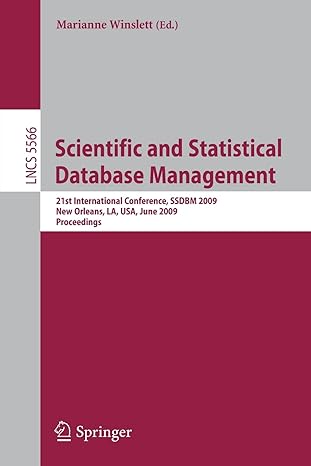Question
Problem 7. (40 points) In this problem, you will prove that division with remainder is welldefined. That is, you will prove that for any two
Problem 7. (40 points) In this problem, you will prove that division with remainder is welldefined. That is, you will prove that for any two integers a > 0 and b, there exists a unique remainder after the division of b and a. We will do the proof in two parts: first by proving that there is at most one remainder, and then by proving that there exists at least one remainder. The conclusion will be that there exists a unique remainder. Assume a and b are both integers and a > 0. Define a remainder after the division of b by a to be a value r such that r 0, r < a, and there exists an integer q for which b = aq + r.
(a) (20 points) Prove that if r1 and r2 are both remainders after the division of b by a, then r1 = r2 (that is, there is at most one remainder). You can use without proof reasonable facts about integer multiplication, addition, subtraction, and >, but dont assume anything about integer division. In particular, you can use the fact that there are no integer multiplies of a that are greater than 0 and less than a.
(b) (20 points) Let S = { integer s 0 : integer q such that b = aq + s}. You can use without proof the following fact: every nonempty subset of nonnegative integers contains an element that is smaller than all other values in the subset. Prove that S contains a remainder after the division of b by a (that is, there is at least one remainder).
Step by Step Solution
There are 3 Steps involved in it
Step: 1

Get Instant Access to Expert-Tailored Solutions
See step-by-step solutions with expert insights and AI powered tools for academic success
Step: 2

Step: 3

Ace Your Homework with AI
Get the answers you need in no time with our AI-driven, step-by-step assistance
Get Started


